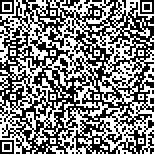| 引用本文: | 姜黎,李波,吴倪,王芊入,余珊,吴瑶,段杰,尚天琼,蔡亚南.应用PRECEDE-PROCEED模式分析医师特殊使用级抗菌药物处方行为的影响因素[J].中国现代应用药学,2021,38(6):750-755. |
| JIANG Li,LI Bo,WU Ni,WANG Qianru,YU Shan,WU Yao,DUAN Jie,SHANG Tianqiong,CAI Yanan.Analysis of Influencing Factors of Doctor's Prescribing Behavior of Specialized Antibacterial Drugs by PRECEDE-PROCEED Model[J].Chin J Mod Appl Pharm(中国现代应用药学),2021,38(6):750-755. |
|
| |
|
|
| 本文已被:浏览 9660次 下载 4645次 |

码上扫一扫! |
|
|
| 应用PRECEDE-PROCEED模式分析医师特殊使用级抗菌药物处方行为的影响因素 |
|
姜黎, 李波, 吴倪, 王芊入, 余珊, 吴瑶, 段杰, 尚天琼, 蔡亚南
|
|
成都市郫都区人民医院药学部, 成都 611730
|
|
| 摘要: |
| 目的 研究医师特殊使用级抗菌药物处方行为的影响因素,为规范医师抗菌药物处方行为提供科学依据,促进抗菌药物的合理使用。方法 基于PRECEDE-PROCEED模式的核心理论PRECEDE,将影响医师特殊使用级抗菌药物处方行为的因素分为倾向因素、促成因素和强化因素;自制问卷对具有抗菌药物处方权限的医师154名进行问卷调查。结果 调查共回收153份问卷,回收率99.35%,其中有效问卷147份,问卷有效率为95.45%。3大影响因素得分:强化因素平均分最高,为3.94,其中最高分4.21,最低分2.93;倾向因素平均分3.84,其中最高分4.10,最低分3.39;促成因素平均分最低,为3.40,其中最高分4.22,最低分2.80。结论 为更加有效地规范医师的特殊使用级抗菌药物处方行为,促进特殊使用级抗菌药物的合理使用,应进一步发挥强化因素、倾向因素的积极影响,同时改善促成因素。 |
| 关键词: 特殊使用级抗菌药物 PRECEDE-PROCEED 临床药师 处方行为 |
| DOI:10.13748/j.cnki.issn1007-7693.2021.06.022 |
| 分类号:R969.3 |
| 基金项目:四川省卫生和计划生育委员会科研课题(18PJ541);成都市医学科研课题(2018013);四川省教育厅人文社会科学重点研究基地——西南医科大学“四川医院管理和发展研究中心”资助项目(SCYG2018-18) |
|
| Analysis of Influencing Factors of Doctor's Prescribing Behavior of Specialized Antibacterial Drugs by PRECEDE-PROCEED Model |
|
JIANG Li, LI Bo, WU Ni, WANG Qianru, YU Shan, WU Yao, DUAN Jie, SHANG Tianqiong, CAI Yanan
|
|
Department of Pharmacy, Pidu District People's Hospital of Chengdu, Chengdu 611730, China
|
| Abstract: |
| OBJECTIVE To explore the influence factors of doctors' prescribing behavior of specialized antibacterial drugs, to provide scientific basis for regulating doctors' prescription behavior of specialized antibacterial drugs, and to promote the rational use of antibiotics. METHODS Based on the PRECEDE which was the core theory of PRECEDE-PROCEED model, the influence factors of prescribing behaviors were divided into predisposing factors, enabling factors and reinforcing factors. The 154 doctors with antimicrobial prescription authority from a 3A hospital were recruited to participate in the self-designed questionnaire survey. RESULTS There were 153 questionnaires recovered, the recovery rate was 99.35%, the number of effective questionnaires was 147, and the effective rate was 95.45%. Among the three influencing factors, the average score of reinforcing factors was the highest, with the highest score of 4.21 and the lowest score of 2.93. The average score of predisposing factors was 3.84, with the highest score of 4.10 and the lowest score of 3.39. The average score of enabling factors was 3.40, with the highest score of 4.22 and the lowest score of 2.80. CONCLUSION In order to normalize doctors' prescription behavior, and promote the rational use of specialized antibacterial drugs, the positive influence of the reinforcing factors and predisposing factors should be further developed, while the enabling factors should be improved. |
| Key words: specialized antibacterial drugs PRECEDE-PROCEED clinical pharmacist prescribing behavior |
|
|
|
|
